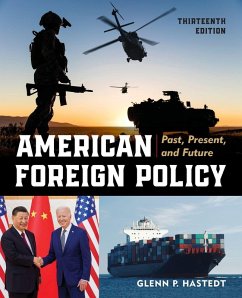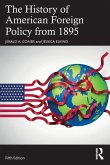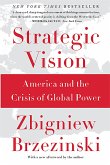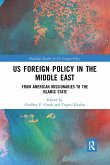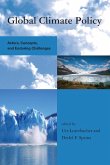- Broschiertes Buch
- Merkliste
- Auf die Merkliste
- Bewerten Bewerten
- Teilen
- Produkt teilen
- Produkterinnerung
- Produkterinnerung
American Foreign Policy helps students develop the critical thinking skills needed to participate in current debates about foreign policy. The 13th edition, updated to include recent events such as the US withdrawal from Afghanistan and the Russian invasion of Ukraine, emerges at a critical time of rising political tensions at home and abroad.
Andere Kunden interessierten sich auch für
![The Vortex The Vortex]() Scott CarneyThe Vortex31,99 €
Scott CarneyThe Vortex31,99 €![The History of American Foreign Policy from 1895 The History of American Foreign Policy from 1895]() Jerald A. CombsThe History of American Foreign Policy from 189540,99 €
Jerald A. CombsThe History of American Foreign Policy from 189540,99 €![The History of American Foreign Policy from 1895 The History of American Foreign Policy from 1895]() Jerald A. CombsThe History of American Foreign Policy from 1895152,99 €
Jerald A. CombsThe History of American Foreign Policy from 1895152,99 €![Strategic Vision Strategic Vision]() Zbigniew BrzezinskiStrategic Vision13,99 €
Zbigniew BrzezinskiStrategic Vision13,99 €![US Foreign Policy in the Middle East US Foreign Policy in the Middle East]() US Foreign Policy in the Middle East45,99 €
US Foreign Policy in the Middle East45,99 €![Global Climate Policy Global Climate Policy]() Global Climate Policy37,99 €
Global Climate Policy37,99 €![American Presidents and Israeli Settlements since 1967 American Presidents and Israeli Settlements since 1967]() Michael F. Cairo (U.S.A Transylvania University)American Presidents and Israeli Settlements since 1967195,99 €
Michael F. Cairo (U.S.A Transylvania University)American Presidents and Israeli Settlements since 1967195,99 €-
-
-
American Foreign Policy helps students develop the critical thinking skills needed to participate in current debates about foreign policy. The 13th edition, updated to include recent events such as the US withdrawal from Afghanistan and the Russian invasion of Ukraine, emerges at a critical time of rising political tensions at home and abroad.
Hinweis: Dieser Artikel kann nur an eine deutsche Lieferadresse ausgeliefert werden.
Hinweis: Dieser Artikel kann nur an eine deutsche Lieferadresse ausgeliefert werden.
Produktdetails
- Produktdetails
- Verlag: Rowman & Littlefield
- Thirteenth Edition
- Seitenzahl: 386
- Erscheinungstermin: 6. Februar 2023
- Englisch
- Abmessung: 235mm x 191mm x 21mm
- Gewicht: 724g
- ISBN-13: 9781538173756
- ISBN-10: 1538173751
- Artikelnr.: 66139182
- Herstellerkennzeichnung
- Libri GmbH
- Europaallee 1
- 36244 Bad Hersfeld
- gpsr@libri.de
- Verlag: Rowman & Littlefield
- Thirteenth Edition
- Seitenzahl: 386
- Erscheinungstermin: 6. Februar 2023
- Englisch
- Abmessung: 235mm x 191mm x 21mm
- Gewicht: 724g
- ISBN-13: 9781538173756
- ISBN-10: 1538173751
- Artikelnr.: 66139182
- Herstellerkennzeichnung
- Libri GmbH
- Europaallee 1
- 36244 Bad Hersfeld
- gpsr@libri.de
Glenn P. Hastedt is a professor emeritus of the Justice Studies department at James Madison University (JMU), where he served as the chair. His publications include "American Foreign Policy: Past, Present, and Future" and numerous articles on intelligence in "Intelligence and National Security" and the "International Journal of Intelligence and Counterintelligence". He is a former co-editor of the journal "White House Studies." Dr. Hastedt supports the Northeast Intelligence Community Centers for Academic Excellence.
Preface
1. DEFINING AMERICAN FOREIGN POLICY PROBLEMS
On the Agenda: Leaving Afghanistan
Thinking about Foreign Policy Problems
Choices
What Do Americans Want in Foreign Policy?
The National Interest
Costs
Building Consensus
Selecting a Policy Instrument
Hard Power and Soft Power
Unilateral or Multilateral Action
Historical Lesson: Into Afghanistan
Presidential Foreign Policy Doctrines
The Truman Doctrine
The Nixon Doctrine
The Carter Doctrine
The Reagan Doctrine
The Bush Doctrine
In Search of the Trump Doctrine
Is There a Trump Foreign Policy Legacy?
Assessing Foreign Policy Results
Intellectual Coherence
The Dominance of Domestic Politics
Consistency of Application
Over the Horizon: The Future of Grand Strategy
2. THE GLOBAL CONTEXT
On the Agenda: The Ukraine War
Thinking about the World
Realism
Neoliberalism
Constructivism
International System: Structural Constants
Decentralization
Self-Help System
A Stratified System
International System: Evolutionary Trends
Diffusion of Power
Issue Proliferation
Actor Proliferation
Historical Lesson: NATO
Regional Diversity
Dominant Features Today
Terrorism
Globalization
American Hegemony
America and the World: Attitudes and Perceptions
Over the Horizon: 2040
3. THE AMERICAN NATIONAL STYLE
On the Agenda: The Mexican Border
The Importance of Ideas
Isolationism versus Internationalism
Historical Sources of the American National Style
Patterns
Unilateralism
Moral Pragmatism
Legalism
Consequences of the American National Style
Historical Lesson: The Bracero Program
Voices from the Past
Over the Horizon: A Millennial Foreign Policy?
4. LEARNING FROM THE PAST
On the Agenda: Covid-19
How Do Policy Makers Learn from the Past?
Events From Which Policy Makers Learn
Types of Calculations Made
Lessons Learned
Historical Lesson: Ebola
Case Studies
The Vietnam War
The Iraq War
Over the Horizon: Searching for Lessons from Afghanistan
5. SOCIETY
On the Agenda: Quincy Institute for Responsible Statecraft
Public Awareness of Foreign Policy Issues
Public Opinion
Trends and Content
Public Opinion and the Use of Force
Impact of Public Opinion
Elections
Voting and Foreign Policy
Impact of Elections
Interest Groups
Historical Lesson: America First Committee, 1940
Types of Interest Groups
Impact of Interest Groups
Political Protest
The Media and American Foreign Policy
Newspapers and Television
The New Media and American Foreign Policy
Shaping the Public's View
States and Cities: The New Foreign Policy Battleground
Policy Makers' Responses
Over the Horizon: An Intelligence-Industrial Complex?
6. CONGRESS
On the Agenda: Aid for Ukraine
Constitutional Powers
Treaty-Making Power
Appointment Powers
War Powers
Historical Lesson: War Powers Act
Commerce Powers
Congressional Structure and Foreign Policy
Blunt Foreign Policy Tools
The Absence of a Single Voice
Policy Entrepreneurship
Staff Aides
Influence of Party and Region
Outsourcing Foreign Policy
Congress and the President: The Changing Relationship
Over the Horizon: A New War Powers Act?
7. PRESIDENCY
On the Agenda: Biden's First 100 Days
Historical Lesson: John F. Kennedy's First 100 Days
Weak President or Strong President
Presidential Power and Supreme Court Decisions
The President and the Foreign Affairs Constitution
Executive Agreements
Signing Statements
Executive Orders, Spending, and Administrative Powers
Informal Ambassadors
Undeclared Wars
When Does the President Matter?
Presidential Personality
Presidential Managerial Style
The National Security Council
Other White House Voices
The Vice President
The U.S. Trade Representative
The White House Chief of Staff
The First Lady
Over the Horizon: Improving Presidential Transitions
8. BUREAUCRACY
On the Agenda: Fixing the State Department
Presidents and the Bureaucracy
The State Department
Structure and Growth of the State Department
The State Department's Value System
Impact of the State Department on Foreign Policy
The Department of Defense
Structure and Growth of the Department of Defense
Historical Lesson: Integrating the Military
The Value System of the Department of Defense
Impact of the Defense Department on Foreign Policy
The CIA and the Intelligence Community
Structure and Growth of the CIA and the Intelligence Community
The Intelligence Community's Value System
Impact of the CIA and the Intelligence Community on Foreign Policy
The Domestic Bureaucracies
Treasury, Commerce, and Agriculture
Homeland Security
Policy Makers' Response to Bureaucracy
Over the Horizon: U.S. Space Command
9. POLICY-MAKING MODELS
On the Agenda: Ukraine War Decision Making
Foreign Policy Decisions and Models
The Rational Actor Model
The Bureaucratic Politics Model
The Small-Group Decision-Making Model
Elite Theory and Pluralism
Historical Lesson: The War to End All Wars
Integrating Models
The Cuban Missile Crisis
The Crisis: An Overview
Applying the Rational Actor Model to the Crisis
Applying the Bureaucratic Politics Model to the Crisis
Applying the Small-Group Decision-Making Model to the Crisis
Models: A Policy Maker Critique
Over the Horizon: Individual-Centered Models
10. DIPLOMACY
On the Agenda: The Paris Agreement
Diplomacy: Choices and Dilemmas
The Diplomatic Tool Kit
Bilateralism versus Multilateralism
Process versus Product
Incentives versus Sanctions
Bilateral Diplomacy: Allies, Friends, Adversaries
Shuttle Diplomacy
Summit Diplomacy
Economic Summits
East-West Superpower Summits
Conference Diplomacy
The General Agreement on Tariffs and Trade (GATT) and the World Trade
Organization (WTO)
Historical Lesson: The Kyoto Protocol and Copenhagen Accord
Environmental Conferences
Human Rights Conferences
Global Heath Conferences
UN Diplomacy
Public Diplomacy and Digital Diplomacy
The Political Use of Force
Coercive Diplomacy
Nuclear Diplomacy
Arms Transfers
Over the Horizon: Coalitions of the Willing
11. ECONOMIC INSTRUMENTS
On the Agenda: United States-Mexico-Canada Agreement (USMCA)
Economic Statecraft
Inventory of Options
Strategic Outlooks
Free Trade
Strategic Trade
Monetary Strategies
Varieties of Trade Agreements
Bilateral Trade Agreements
Regional Trade Agreements
Global Trade Agreements
The China Trade War
Economic Sanctions
Using Sanctions
Sanctions in Action: Iran, Cuba, Russia
Foreign Aid
Types of Foreign Aid
Cold War Foreign Aid
Post-Cold War Foreign Aid
Historical Lesson: NAFTA
Post-9/11 Foreign Aid
Contemporary Foreign Aid
Over the Horizon: How Trade Wars End
12. MILITARY INSTRUMENTS: BIG WARS
On the Agenda: North Korean Denuclearization
Cold War Nuclear Thinking
The U.S. Cold War Strategic Arsenal
U.S. Cold War Nuclear Strategy
Historical Lesson: The Baruch Plan
Post-Cold War Nuclear Thinking
The U.S. Post-Cold War Strategic Nuclear Arsenal
U.S. Post-Cold War Nuclear Strategy: Content
Bridging the Nuclear-Conventional Divide
Deterrence
Preemption
Using Large-Scale Conventional Military Force
Reducing the Danger of War: Arms Control and Disarmament
The Cold War Record
The Post-Cold War Record
Defense
The Strategic Defense Initiative
National Missile Defense Systems
Over the Horizon: A New Age of Nuclear Proliferation
13. MILITARY INSTRUMENTS: SMALL WARS
On the Agenda: Cyber Warfare
Separating Big Wars from Small Wars
Exiting Small Wars
Types of Small Wars
Hybrid Warfare
Counterinsurgency
Counterterrorism
The Return of Small Wars?
Small Wars by Other Means
Cold War Covert Action
Post-Cold War Covert Action
The Covert War against Osama bin Laden
Cyber Warfare
Small Wars for Peace
Humanitarian/Peacekeeping Operations
Historical Lesson: The Path to Mogadishu
Stability Operations
Conventional, Cyberspace, and WMD Arms Control
Chemical and Biological Weapons
Recovering Loose WMD Material
Cyberspace
Conventional Weapons
Counterproliferation
Over the Horizon: Drone Wars
14. ALTERNATIVE FUTURES
On the Agenda: The South China Sea
Foreign Policy Visions
The United States as an Ordinary State
Reformed America
Pragmatic America
American Crusader
America the Balancer
Disengaged America
Historical Lesson: The First Asian Pivot: Commodore Perry's Opening of
Japan
Over the Horizon: A New Cold War?
Glossary
Notes
About the Author
Index
1. DEFINING AMERICAN FOREIGN POLICY PROBLEMS
On the Agenda: Leaving Afghanistan
Thinking about Foreign Policy Problems
Choices
What Do Americans Want in Foreign Policy?
The National Interest
Costs
Building Consensus
Selecting a Policy Instrument
Hard Power and Soft Power
Unilateral or Multilateral Action
Historical Lesson: Into Afghanistan
Presidential Foreign Policy Doctrines
The Truman Doctrine
The Nixon Doctrine
The Carter Doctrine
The Reagan Doctrine
The Bush Doctrine
In Search of the Trump Doctrine
Is There a Trump Foreign Policy Legacy?
Assessing Foreign Policy Results
Intellectual Coherence
The Dominance of Domestic Politics
Consistency of Application
Over the Horizon: The Future of Grand Strategy
2. THE GLOBAL CONTEXT
On the Agenda: The Ukraine War
Thinking about the World
Realism
Neoliberalism
Constructivism
International System: Structural Constants
Decentralization
Self-Help System
A Stratified System
International System: Evolutionary Trends
Diffusion of Power
Issue Proliferation
Actor Proliferation
Historical Lesson: NATO
Regional Diversity
Dominant Features Today
Terrorism
Globalization
American Hegemony
America and the World: Attitudes and Perceptions
Over the Horizon: 2040
3. THE AMERICAN NATIONAL STYLE
On the Agenda: The Mexican Border
The Importance of Ideas
Isolationism versus Internationalism
Historical Sources of the American National Style
Patterns
Unilateralism
Moral Pragmatism
Legalism
Consequences of the American National Style
Historical Lesson: The Bracero Program
Voices from the Past
Over the Horizon: A Millennial Foreign Policy?
4. LEARNING FROM THE PAST
On the Agenda: Covid-19
How Do Policy Makers Learn from the Past?
Events From Which Policy Makers Learn
Types of Calculations Made
Lessons Learned
Historical Lesson: Ebola
Case Studies
The Vietnam War
The Iraq War
Over the Horizon: Searching for Lessons from Afghanistan
5. SOCIETY
On the Agenda: Quincy Institute for Responsible Statecraft
Public Awareness of Foreign Policy Issues
Public Opinion
Trends and Content
Public Opinion and the Use of Force
Impact of Public Opinion
Elections
Voting and Foreign Policy
Impact of Elections
Interest Groups
Historical Lesson: America First Committee, 1940
Types of Interest Groups
Impact of Interest Groups
Political Protest
The Media and American Foreign Policy
Newspapers and Television
The New Media and American Foreign Policy
Shaping the Public's View
States and Cities: The New Foreign Policy Battleground
Policy Makers' Responses
Over the Horizon: An Intelligence-Industrial Complex?
6. CONGRESS
On the Agenda: Aid for Ukraine
Constitutional Powers
Treaty-Making Power
Appointment Powers
War Powers
Historical Lesson: War Powers Act
Commerce Powers
Congressional Structure and Foreign Policy
Blunt Foreign Policy Tools
The Absence of a Single Voice
Policy Entrepreneurship
Staff Aides
Influence of Party and Region
Outsourcing Foreign Policy
Congress and the President: The Changing Relationship
Over the Horizon: A New War Powers Act?
7. PRESIDENCY
On the Agenda: Biden's First 100 Days
Historical Lesson: John F. Kennedy's First 100 Days
Weak President or Strong President
Presidential Power and Supreme Court Decisions
The President and the Foreign Affairs Constitution
Executive Agreements
Signing Statements
Executive Orders, Spending, and Administrative Powers
Informal Ambassadors
Undeclared Wars
When Does the President Matter?
Presidential Personality
Presidential Managerial Style
The National Security Council
Other White House Voices
The Vice President
The U.S. Trade Representative
The White House Chief of Staff
The First Lady
Over the Horizon: Improving Presidential Transitions
8. BUREAUCRACY
On the Agenda: Fixing the State Department
Presidents and the Bureaucracy
The State Department
Structure and Growth of the State Department
The State Department's Value System
Impact of the State Department on Foreign Policy
The Department of Defense
Structure and Growth of the Department of Defense
Historical Lesson: Integrating the Military
The Value System of the Department of Defense
Impact of the Defense Department on Foreign Policy
The CIA and the Intelligence Community
Structure and Growth of the CIA and the Intelligence Community
The Intelligence Community's Value System
Impact of the CIA and the Intelligence Community on Foreign Policy
The Domestic Bureaucracies
Treasury, Commerce, and Agriculture
Homeland Security
Policy Makers' Response to Bureaucracy
Over the Horizon: U.S. Space Command
9. POLICY-MAKING MODELS
On the Agenda: Ukraine War Decision Making
Foreign Policy Decisions and Models
The Rational Actor Model
The Bureaucratic Politics Model
The Small-Group Decision-Making Model
Elite Theory and Pluralism
Historical Lesson: The War to End All Wars
Integrating Models
The Cuban Missile Crisis
The Crisis: An Overview
Applying the Rational Actor Model to the Crisis
Applying the Bureaucratic Politics Model to the Crisis
Applying the Small-Group Decision-Making Model to the Crisis
Models: A Policy Maker Critique
Over the Horizon: Individual-Centered Models
10. DIPLOMACY
On the Agenda: The Paris Agreement
Diplomacy: Choices and Dilemmas
The Diplomatic Tool Kit
Bilateralism versus Multilateralism
Process versus Product
Incentives versus Sanctions
Bilateral Diplomacy: Allies, Friends, Adversaries
Shuttle Diplomacy
Summit Diplomacy
Economic Summits
East-West Superpower Summits
Conference Diplomacy
The General Agreement on Tariffs and Trade (GATT) and the World Trade
Organization (WTO)
Historical Lesson: The Kyoto Protocol and Copenhagen Accord
Environmental Conferences
Human Rights Conferences
Global Heath Conferences
UN Diplomacy
Public Diplomacy and Digital Diplomacy
The Political Use of Force
Coercive Diplomacy
Nuclear Diplomacy
Arms Transfers
Over the Horizon: Coalitions of the Willing
11. ECONOMIC INSTRUMENTS
On the Agenda: United States-Mexico-Canada Agreement (USMCA)
Economic Statecraft
Inventory of Options
Strategic Outlooks
Free Trade
Strategic Trade
Monetary Strategies
Varieties of Trade Agreements
Bilateral Trade Agreements
Regional Trade Agreements
Global Trade Agreements
The China Trade War
Economic Sanctions
Using Sanctions
Sanctions in Action: Iran, Cuba, Russia
Foreign Aid
Types of Foreign Aid
Cold War Foreign Aid
Post-Cold War Foreign Aid
Historical Lesson: NAFTA
Post-9/11 Foreign Aid
Contemporary Foreign Aid
Over the Horizon: How Trade Wars End
12. MILITARY INSTRUMENTS: BIG WARS
On the Agenda: North Korean Denuclearization
Cold War Nuclear Thinking
The U.S. Cold War Strategic Arsenal
U.S. Cold War Nuclear Strategy
Historical Lesson: The Baruch Plan
Post-Cold War Nuclear Thinking
The U.S. Post-Cold War Strategic Nuclear Arsenal
U.S. Post-Cold War Nuclear Strategy: Content
Bridging the Nuclear-Conventional Divide
Deterrence
Preemption
Using Large-Scale Conventional Military Force
Reducing the Danger of War: Arms Control and Disarmament
The Cold War Record
The Post-Cold War Record
Defense
The Strategic Defense Initiative
National Missile Defense Systems
Over the Horizon: A New Age of Nuclear Proliferation
13. MILITARY INSTRUMENTS: SMALL WARS
On the Agenda: Cyber Warfare
Separating Big Wars from Small Wars
Exiting Small Wars
Types of Small Wars
Hybrid Warfare
Counterinsurgency
Counterterrorism
The Return of Small Wars?
Small Wars by Other Means
Cold War Covert Action
Post-Cold War Covert Action
The Covert War against Osama bin Laden
Cyber Warfare
Small Wars for Peace
Humanitarian/Peacekeeping Operations
Historical Lesson: The Path to Mogadishu
Stability Operations
Conventional, Cyberspace, and WMD Arms Control
Chemical and Biological Weapons
Recovering Loose WMD Material
Cyberspace
Conventional Weapons
Counterproliferation
Over the Horizon: Drone Wars
14. ALTERNATIVE FUTURES
On the Agenda: The South China Sea
Foreign Policy Visions
The United States as an Ordinary State
Reformed America
Pragmatic America
American Crusader
America the Balancer
Disengaged America
Historical Lesson: The First Asian Pivot: Commodore Perry's Opening of
Japan
Over the Horizon: A New Cold War?
Glossary
Notes
About the Author
Index
Preface
1. DEFINING AMERICAN FOREIGN POLICY PROBLEMS
On the Agenda: Leaving Afghanistan
Thinking about Foreign Policy Problems
Choices
What Do Americans Want in Foreign Policy?
The National Interest
Costs
Building Consensus
Selecting a Policy Instrument
Hard Power and Soft Power
Unilateral or Multilateral Action
Historical Lesson: Into Afghanistan
Presidential Foreign Policy Doctrines
The Truman Doctrine
The Nixon Doctrine
The Carter Doctrine
The Reagan Doctrine
The Bush Doctrine
In Search of the Trump Doctrine
Is There a Trump Foreign Policy Legacy?
Assessing Foreign Policy Results
Intellectual Coherence
The Dominance of Domestic Politics
Consistency of Application
Over the Horizon: The Future of Grand Strategy
2. THE GLOBAL CONTEXT
On the Agenda: The Ukraine War
Thinking about the World
Realism
Neoliberalism
Constructivism
International System: Structural Constants
Decentralization
Self-Help System
A Stratified System
International System: Evolutionary Trends
Diffusion of Power
Issue Proliferation
Actor Proliferation
Historical Lesson: NATO
Regional Diversity
Dominant Features Today
Terrorism
Globalization
American Hegemony
America and the World: Attitudes and Perceptions
Over the Horizon: 2040
3. THE AMERICAN NATIONAL STYLE
On the Agenda: The Mexican Border
The Importance of Ideas
Isolationism versus Internationalism
Historical Sources of the American National Style
Patterns
Unilateralism
Moral Pragmatism
Legalism
Consequences of the American National Style
Historical Lesson: The Bracero Program
Voices from the Past
Over the Horizon: A Millennial Foreign Policy?
4. LEARNING FROM THE PAST
On the Agenda: Covid-19
How Do Policy Makers Learn from the Past?
Events From Which Policy Makers Learn
Types of Calculations Made
Lessons Learned
Historical Lesson: Ebola
Case Studies
The Vietnam War
The Iraq War
Over the Horizon: Searching for Lessons from Afghanistan
5. SOCIETY
On the Agenda: Quincy Institute for Responsible Statecraft
Public Awareness of Foreign Policy Issues
Public Opinion
Trends and Content
Public Opinion and the Use of Force
Impact of Public Opinion
Elections
Voting and Foreign Policy
Impact of Elections
Interest Groups
Historical Lesson: America First Committee, 1940
Types of Interest Groups
Impact of Interest Groups
Political Protest
The Media and American Foreign Policy
Newspapers and Television
The New Media and American Foreign Policy
Shaping the Public's View
States and Cities: The New Foreign Policy Battleground
Policy Makers' Responses
Over the Horizon: An Intelligence-Industrial Complex?
6. CONGRESS
On the Agenda: Aid for Ukraine
Constitutional Powers
Treaty-Making Power
Appointment Powers
War Powers
Historical Lesson: War Powers Act
Commerce Powers
Congressional Structure and Foreign Policy
Blunt Foreign Policy Tools
The Absence of a Single Voice
Policy Entrepreneurship
Staff Aides
Influence of Party and Region
Outsourcing Foreign Policy
Congress and the President: The Changing Relationship
Over the Horizon: A New War Powers Act?
7. PRESIDENCY
On the Agenda: Biden's First 100 Days
Historical Lesson: John F. Kennedy's First 100 Days
Weak President or Strong President
Presidential Power and Supreme Court Decisions
The President and the Foreign Affairs Constitution
Executive Agreements
Signing Statements
Executive Orders, Spending, and Administrative Powers
Informal Ambassadors
Undeclared Wars
When Does the President Matter?
Presidential Personality
Presidential Managerial Style
The National Security Council
Other White House Voices
The Vice President
The U.S. Trade Representative
The White House Chief of Staff
The First Lady
Over the Horizon: Improving Presidential Transitions
8. BUREAUCRACY
On the Agenda: Fixing the State Department
Presidents and the Bureaucracy
The State Department
Structure and Growth of the State Department
The State Department's Value System
Impact of the State Department on Foreign Policy
The Department of Defense
Structure and Growth of the Department of Defense
Historical Lesson: Integrating the Military
The Value System of the Department of Defense
Impact of the Defense Department on Foreign Policy
The CIA and the Intelligence Community
Structure and Growth of the CIA and the Intelligence Community
The Intelligence Community's Value System
Impact of the CIA and the Intelligence Community on Foreign Policy
The Domestic Bureaucracies
Treasury, Commerce, and Agriculture
Homeland Security
Policy Makers' Response to Bureaucracy
Over the Horizon: U.S. Space Command
9. POLICY-MAKING MODELS
On the Agenda: Ukraine War Decision Making
Foreign Policy Decisions and Models
The Rational Actor Model
The Bureaucratic Politics Model
The Small-Group Decision-Making Model
Elite Theory and Pluralism
Historical Lesson: The War to End All Wars
Integrating Models
The Cuban Missile Crisis
The Crisis: An Overview
Applying the Rational Actor Model to the Crisis
Applying the Bureaucratic Politics Model to the Crisis
Applying the Small-Group Decision-Making Model to the Crisis
Models: A Policy Maker Critique
Over the Horizon: Individual-Centered Models
10. DIPLOMACY
On the Agenda: The Paris Agreement
Diplomacy: Choices and Dilemmas
The Diplomatic Tool Kit
Bilateralism versus Multilateralism
Process versus Product
Incentives versus Sanctions
Bilateral Diplomacy: Allies, Friends, Adversaries
Shuttle Diplomacy
Summit Diplomacy
Economic Summits
East-West Superpower Summits
Conference Diplomacy
The General Agreement on Tariffs and Trade (GATT) and the World Trade
Organization (WTO)
Historical Lesson: The Kyoto Protocol and Copenhagen Accord
Environmental Conferences
Human Rights Conferences
Global Heath Conferences
UN Diplomacy
Public Diplomacy and Digital Diplomacy
The Political Use of Force
Coercive Diplomacy
Nuclear Diplomacy
Arms Transfers
Over the Horizon: Coalitions of the Willing
11. ECONOMIC INSTRUMENTS
On the Agenda: United States-Mexico-Canada Agreement (USMCA)
Economic Statecraft
Inventory of Options
Strategic Outlooks
Free Trade
Strategic Trade
Monetary Strategies
Varieties of Trade Agreements
Bilateral Trade Agreements
Regional Trade Agreements
Global Trade Agreements
The China Trade War
Economic Sanctions
Using Sanctions
Sanctions in Action: Iran, Cuba, Russia
Foreign Aid
Types of Foreign Aid
Cold War Foreign Aid
Post-Cold War Foreign Aid
Historical Lesson: NAFTA
Post-9/11 Foreign Aid
Contemporary Foreign Aid
Over the Horizon: How Trade Wars End
12. MILITARY INSTRUMENTS: BIG WARS
On the Agenda: North Korean Denuclearization
Cold War Nuclear Thinking
The U.S. Cold War Strategic Arsenal
U.S. Cold War Nuclear Strategy
Historical Lesson: The Baruch Plan
Post-Cold War Nuclear Thinking
The U.S. Post-Cold War Strategic Nuclear Arsenal
U.S. Post-Cold War Nuclear Strategy: Content
Bridging the Nuclear-Conventional Divide
Deterrence
Preemption
Using Large-Scale Conventional Military Force
Reducing the Danger of War: Arms Control and Disarmament
The Cold War Record
The Post-Cold War Record
Defense
The Strategic Defense Initiative
National Missile Defense Systems
Over the Horizon: A New Age of Nuclear Proliferation
13. MILITARY INSTRUMENTS: SMALL WARS
On the Agenda: Cyber Warfare
Separating Big Wars from Small Wars
Exiting Small Wars
Types of Small Wars
Hybrid Warfare
Counterinsurgency
Counterterrorism
The Return of Small Wars?
Small Wars by Other Means
Cold War Covert Action
Post-Cold War Covert Action
The Covert War against Osama bin Laden
Cyber Warfare
Small Wars for Peace
Humanitarian/Peacekeeping Operations
Historical Lesson: The Path to Mogadishu
Stability Operations
Conventional, Cyberspace, and WMD Arms Control
Chemical and Biological Weapons
Recovering Loose WMD Material
Cyberspace
Conventional Weapons
Counterproliferation
Over the Horizon: Drone Wars
14. ALTERNATIVE FUTURES
On the Agenda: The South China Sea
Foreign Policy Visions
The United States as an Ordinary State
Reformed America
Pragmatic America
American Crusader
America the Balancer
Disengaged America
Historical Lesson: The First Asian Pivot: Commodore Perry's Opening of
Japan
Over the Horizon: A New Cold War?
Glossary
Notes
About the Author
Index
1. DEFINING AMERICAN FOREIGN POLICY PROBLEMS
On the Agenda: Leaving Afghanistan
Thinking about Foreign Policy Problems
Choices
What Do Americans Want in Foreign Policy?
The National Interest
Costs
Building Consensus
Selecting a Policy Instrument
Hard Power and Soft Power
Unilateral or Multilateral Action
Historical Lesson: Into Afghanistan
Presidential Foreign Policy Doctrines
The Truman Doctrine
The Nixon Doctrine
The Carter Doctrine
The Reagan Doctrine
The Bush Doctrine
In Search of the Trump Doctrine
Is There a Trump Foreign Policy Legacy?
Assessing Foreign Policy Results
Intellectual Coherence
The Dominance of Domestic Politics
Consistency of Application
Over the Horizon: The Future of Grand Strategy
2. THE GLOBAL CONTEXT
On the Agenda: The Ukraine War
Thinking about the World
Realism
Neoliberalism
Constructivism
International System: Structural Constants
Decentralization
Self-Help System
A Stratified System
International System: Evolutionary Trends
Diffusion of Power
Issue Proliferation
Actor Proliferation
Historical Lesson: NATO
Regional Diversity
Dominant Features Today
Terrorism
Globalization
American Hegemony
America and the World: Attitudes and Perceptions
Over the Horizon: 2040
3. THE AMERICAN NATIONAL STYLE
On the Agenda: The Mexican Border
The Importance of Ideas
Isolationism versus Internationalism
Historical Sources of the American National Style
Patterns
Unilateralism
Moral Pragmatism
Legalism
Consequences of the American National Style
Historical Lesson: The Bracero Program
Voices from the Past
Over the Horizon: A Millennial Foreign Policy?
4. LEARNING FROM THE PAST
On the Agenda: Covid-19
How Do Policy Makers Learn from the Past?
Events From Which Policy Makers Learn
Types of Calculations Made
Lessons Learned
Historical Lesson: Ebola
Case Studies
The Vietnam War
The Iraq War
Over the Horizon: Searching for Lessons from Afghanistan
5. SOCIETY
On the Agenda: Quincy Institute for Responsible Statecraft
Public Awareness of Foreign Policy Issues
Public Opinion
Trends and Content
Public Opinion and the Use of Force
Impact of Public Opinion
Elections
Voting and Foreign Policy
Impact of Elections
Interest Groups
Historical Lesson: America First Committee, 1940
Types of Interest Groups
Impact of Interest Groups
Political Protest
The Media and American Foreign Policy
Newspapers and Television
The New Media and American Foreign Policy
Shaping the Public's View
States and Cities: The New Foreign Policy Battleground
Policy Makers' Responses
Over the Horizon: An Intelligence-Industrial Complex?
6. CONGRESS
On the Agenda: Aid for Ukraine
Constitutional Powers
Treaty-Making Power
Appointment Powers
War Powers
Historical Lesson: War Powers Act
Commerce Powers
Congressional Structure and Foreign Policy
Blunt Foreign Policy Tools
The Absence of a Single Voice
Policy Entrepreneurship
Staff Aides
Influence of Party and Region
Outsourcing Foreign Policy
Congress and the President: The Changing Relationship
Over the Horizon: A New War Powers Act?
7. PRESIDENCY
On the Agenda: Biden's First 100 Days
Historical Lesson: John F. Kennedy's First 100 Days
Weak President or Strong President
Presidential Power and Supreme Court Decisions
The President and the Foreign Affairs Constitution
Executive Agreements
Signing Statements
Executive Orders, Spending, and Administrative Powers
Informal Ambassadors
Undeclared Wars
When Does the President Matter?
Presidential Personality
Presidential Managerial Style
The National Security Council
Other White House Voices
The Vice President
The U.S. Trade Representative
The White House Chief of Staff
The First Lady
Over the Horizon: Improving Presidential Transitions
8. BUREAUCRACY
On the Agenda: Fixing the State Department
Presidents and the Bureaucracy
The State Department
Structure and Growth of the State Department
The State Department's Value System
Impact of the State Department on Foreign Policy
The Department of Defense
Structure and Growth of the Department of Defense
Historical Lesson: Integrating the Military
The Value System of the Department of Defense
Impact of the Defense Department on Foreign Policy
The CIA and the Intelligence Community
Structure and Growth of the CIA and the Intelligence Community
The Intelligence Community's Value System
Impact of the CIA and the Intelligence Community on Foreign Policy
The Domestic Bureaucracies
Treasury, Commerce, and Agriculture
Homeland Security
Policy Makers' Response to Bureaucracy
Over the Horizon: U.S. Space Command
9. POLICY-MAKING MODELS
On the Agenda: Ukraine War Decision Making
Foreign Policy Decisions and Models
The Rational Actor Model
The Bureaucratic Politics Model
The Small-Group Decision-Making Model
Elite Theory and Pluralism
Historical Lesson: The War to End All Wars
Integrating Models
The Cuban Missile Crisis
The Crisis: An Overview
Applying the Rational Actor Model to the Crisis
Applying the Bureaucratic Politics Model to the Crisis
Applying the Small-Group Decision-Making Model to the Crisis
Models: A Policy Maker Critique
Over the Horizon: Individual-Centered Models
10. DIPLOMACY
On the Agenda: The Paris Agreement
Diplomacy: Choices and Dilemmas
The Diplomatic Tool Kit
Bilateralism versus Multilateralism
Process versus Product
Incentives versus Sanctions
Bilateral Diplomacy: Allies, Friends, Adversaries
Shuttle Diplomacy
Summit Diplomacy
Economic Summits
East-West Superpower Summits
Conference Diplomacy
The General Agreement on Tariffs and Trade (GATT) and the World Trade
Organization (WTO)
Historical Lesson: The Kyoto Protocol and Copenhagen Accord
Environmental Conferences
Human Rights Conferences
Global Heath Conferences
UN Diplomacy
Public Diplomacy and Digital Diplomacy
The Political Use of Force
Coercive Diplomacy
Nuclear Diplomacy
Arms Transfers
Over the Horizon: Coalitions of the Willing
11. ECONOMIC INSTRUMENTS
On the Agenda: United States-Mexico-Canada Agreement (USMCA)
Economic Statecraft
Inventory of Options
Strategic Outlooks
Free Trade
Strategic Trade
Monetary Strategies
Varieties of Trade Agreements
Bilateral Trade Agreements
Regional Trade Agreements
Global Trade Agreements
The China Trade War
Economic Sanctions
Using Sanctions
Sanctions in Action: Iran, Cuba, Russia
Foreign Aid
Types of Foreign Aid
Cold War Foreign Aid
Post-Cold War Foreign Aid
Historical Lesson: NAFTA
Post-9/11 Foreign Aid
Contemporary Foreign Aid
Over the Horizon: How Trade Wars End
12. MILITARY INSTRUMENTS: BIG WARS
On the Agenda: North Korean Denuclearization
Cold War Nuclear Thinking
The U.S. Cold War Strategic Arsenal
U.S. Cold War Nuclear Strategy
Historical Lesson: The Baruch Plan
Post-Cold War Nuclear Thinking
The U.S. Post-Cold War Strategic Nuclear Arsenal
U.S. Post-Cold War Nuclear Strategy: Content
Bridging the Nuclear-Conventional Divide
Deterrence
Preemption
Using Large-Scale Conventional Military Force
Reducing the Danger of War: Arms Control and Disarmament
The Cold War Record
The Post-Cold War Record
Defense
The Strategic Defense Initiative
National Missile Defense Systems
Over the Horizon: A New Age of Nuclear Proliferation
13. MILITARY INSTRUMENTS: SMALL WARS
On the Agenda: Cyber Warfare
Separating Big Wars from Small Wars
Exiting Small Wars
Types of Small Wars
Hybrid Warfare
Counterinsurgency
Counterterrorism
The Return of Small Wars?
Small Wars by Other Means
Cold War Covert Action
Post-Cold War Covert Action
The Covert War against Osama bin Laden
Cyber Warfare
Small Wars for Peace
Humanitarian/Peacekeeping Operations
Historical Lesson: The Path to Mogadishu
Stability Operations
Conventional, Cyberspace, and WMD Arms Control
Chemical and Biological Weapons
Recovering Loose WMD Material
Cyberspace
Conventional Weapons
Counterproliferation
Over the Horizon: Drone Wars
14. ALTERNATIVE FUTURES
On the Agenda: The South China Sea
Foreign Policy Visions
The United States as an Ordinary State
Reformed America
Pragmatic America
American Crusader
America the Balancer
Disengaged America
Historical Lesson: The First Asian Pivot: Commodore Perry's Opening of
Japan
Over the Horizon: A New Cold War?
Glossary
Notes
About the Author
Index

